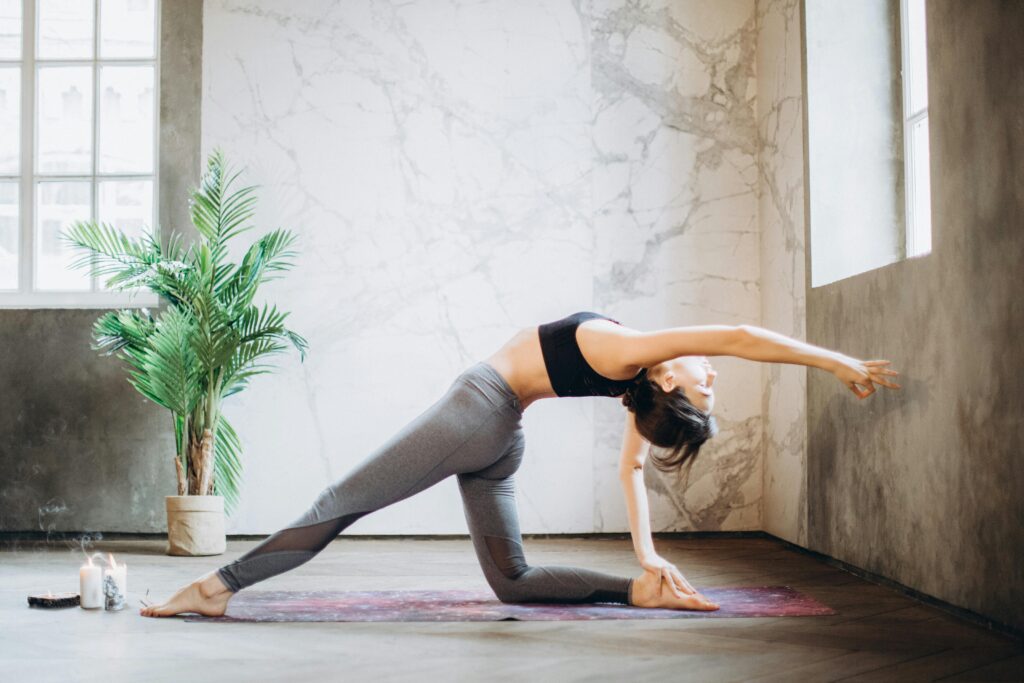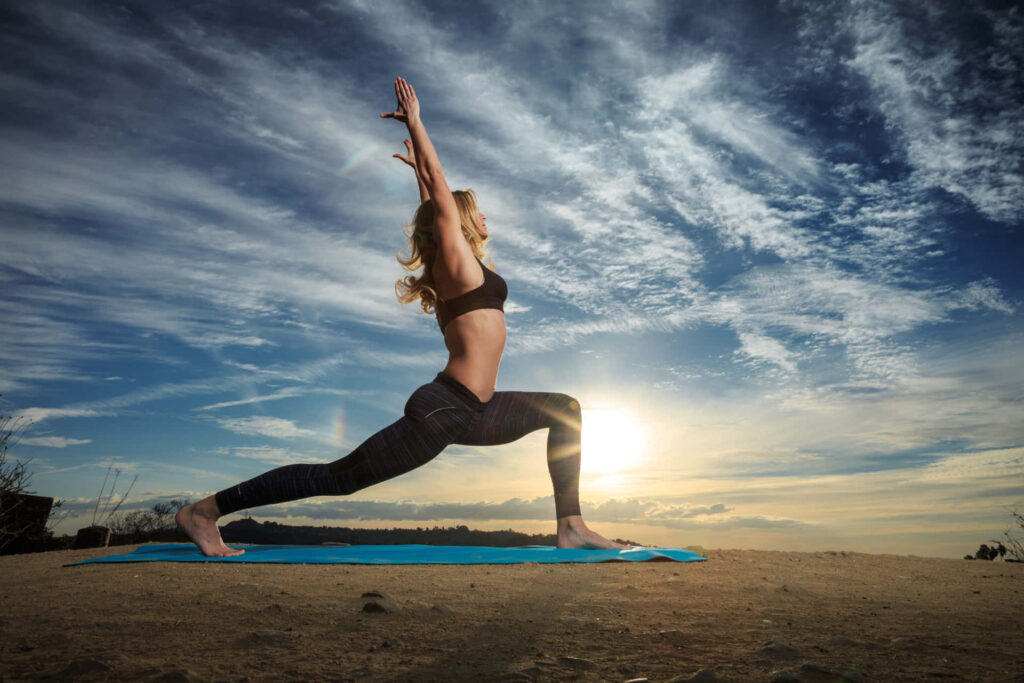The word “Yoga” or “Yog” is derived from “Yuj”, a Sanskrit word which means “to join” or “to unite”. It is a practice that helps one connect with the inner mind or consciousness. It brings a connection between the body and the soul, thereby bringing perfect harmony within. Regular Yoga practice brings physical fitness, breath awareness, connection with the mind and finally the inner self. Today, Yoga is practiced across the world, bringing physical fitness and inner to million men and women.
Today’s woman is a multi-tasker. Unlike older times, her duties are not limited to household chores. She is a mother, a sister and a wife and an educated independent woman, who tries endlessly to maintain a balance between Home and career. Since women are like the roots of the tree of society, it is essential to keep them strong—mentally and physically. Let’s understand the importance of women’s health and how Yoga can help them reach their fittest.
Why is Women’s Health Important
Women are the caretakers of the family. They are responsible for the health of their spouse and children. Illness or death of a woman negatively impacts children, spouse, family and community. Women with healthy mind and body are likely to enhance the family’s health. Hence, it would be appropriate to say that women’s health is the key to a healthy community.
Since women play so many roles in life, they tend to focus on the healthcare of their loved one and neglect their personal needs. This neglect, though filled with love, is the root cause of many diseases that women face. Women need to understand the importance of their health and its effects on their family and loved ones.
What Has Changed Over the Years
Women’s life and their roles have changed drastically over the years. In former days, women’s life was limited to household chores. It was a full-time stay-at-home responsibility. Let aside having a career, women were not even allowed to step out of their homes. It was limited to the kitchen, household duties and childbearing. They were denied the right to education as well. In those conditions as well, women had some time for themselves and physical activity was an add-on to their daily duties. However, things have changed over time, women are now front runners and are competing with men in many fields, and that too without compromising with household duties. These jobs often involve long sitting hours and reduced physical activity, thereby affecting overall health. Hence, it is the need of the hour to take time out for some physical activity as well.
1. Yoga can support hormonal balance
Many women's bodies may undergo hormonal fluctuations throughout their lives. From puberty, most women experience monthly hormone cycles.
And if they choose to become a parent, pregnancy causes enormous hormonal changes. Menopause can bring another set of hormonal challenges to manage, including sleeplessness and hot flashes.
Fortunately, regular yoga practice can help you balance your hormones, making symptoms related to menstruation, menopause, and other hormonal imbalances more bearable. For example, yoga has been shown to “significantly” reduce the symptoms of PMT. This can mean a reduction in symptoms like mood swings, bloating, and skin problems.
2. Yoga can relieve menstrual pain
Every month, many women dread the painful cramps their period can bring . . . .
If this is a problem for you, certain yoga poses can provide relief by improving circulation to your abdominal muscles. And what’s more, the meditative aspect of yoga can help distract and calm your mind.
💙 To find further relief from menstrual pain, try our Untangling Physical Pain meditation.
3. Yoga may enhance fertility
Trying to start a family can be exciting, but for some women, it can be stressful, too. Yoga can help by reducing that stress.
This reduction in stress can help with balancing hormones, plus yoga has been shown to improve both male and female fertility. By incorporating specific asanas—poses—in your routine, it’s thought that yoga can help to make your body more ready to conceive.
4. Yoga can support wellbeing in pregnancy
For some mothers-to-be, pregnancy can bring a sense of anxiety. Yoga has been shown to be beneficial during pregnancy, including helping pregnant women relax.
It can also help to build the strength and flexibility of the muscles you’ll need during labor. You might also find it relieves back pain and other pregnancy symptoms like nausea or shortness of breath. If you’ve never done yoga before or are unsure what poses are best, a special antenatal yoga class could be the way to go. Just make sure to check with your doctor before starting any new exercise during pregnancy.
5. Yoga can boost postpartum recovery
After giving birth, the body and mind undergo tremendous changes. Yoga can play a pivotal role in postpartum recovery
, strengthening your core muscles and reducing your emotional stress. If you’re a new mother, yoga can help you reconnect with your body as you find your new identity as a parent.


6. Yoga increases flexibility and strength
With consistent practice, yoga enhances flexibility, balance, and physical strength.
Even if you start your practice with stiff muscles and little flexibility, you’ll notice improved elasticity and muscle strength over time. You might even feel taller and stronger after a single class.
7. Yoga improves general physical health
Beyond relaxation benefits, yoga can boost your cardio-metabolic health.
Beyond relaxation benefits, yoga can boost your cardio-metabolic health.
8. Yoga benefits mental health
At its core, yoga is a practice of inner reflection paired with movement.
It can reduce symptoms of anxiety and depression. If you’re feeling overwhelmed, try Calm’s resources for anxiety relief and some gentle mindful movements.
💙 Yoga can be wondrous for your mental health and wellbeing. For additional movement ideas, check out this Mindful Movement session from the Daily Move.
9. Yoga supports sleep quality
A restless night can leave you feeling drained. If you struggle with sleep,
adding yoga into your routine can help you achieve a more restful night. You can even incorporate certain bedtime yoga poses to help you rest easier when it’s time to turn the lights out.
💙 Need help drifting off? Try this Sleep Routine movement practice from the Daily Move with Mel Mah.
10. Yoga provides in-the-moment relief from stress and anxiety
Along with a general exploration of relaxation and mindfulness techniques,
yoga can be a powerful tool in combating stress. Focusing on the breath while stretching and moving the body is a great way to pull your mind away from worries and stressors and bring you back to the present moment.
💙 Our stress-relieving resources, like the Breathe Bubble, or our Breathe Into Relaxation guided practice, can help you tackle feelings of worry and enhance your relaxation techniques.
